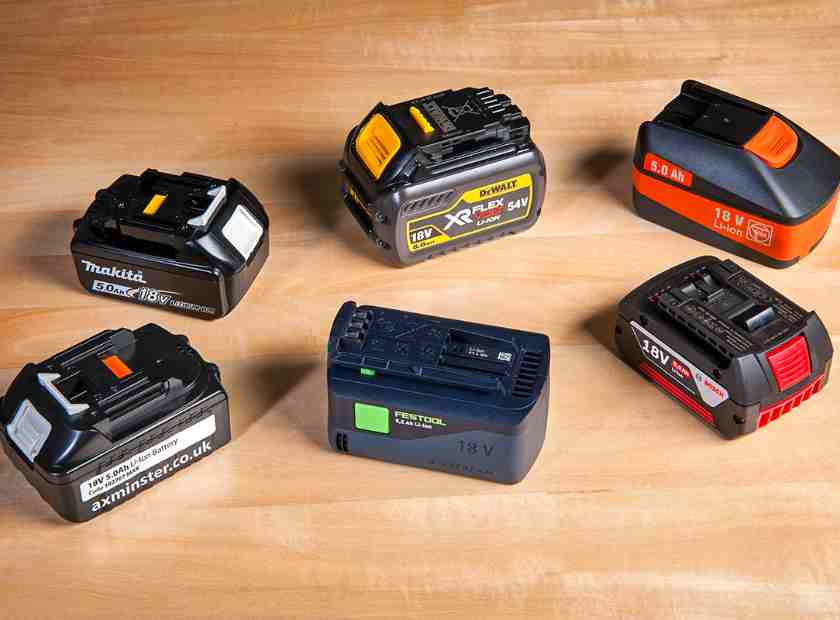

In 1961, Black and Decker released the first cordless drill in the world. It was heavy, with a small 10mm chuck and not very powerful, but it was a revolution. One that would eventually change the way we work on jobsites forever. Today, most tradesman agree that the versatility and convenience of cordless power tools is irreplaceable. No longer do we waste time searching for power or making sure that cords are long enough for the job. But some people are still not convinced.
This series of posts will hopefully answer all the key questions about power, battery life, weight and price. Helping you make the best choice of cordless tools for you. Let’s start with some of the basics.
Basics about Battery Technology:
Up until the early 2000’s, most cordless tools used Nickel Cadmium batteries. Manufactures like DEWALT, designed tools that used batteries ranging from 3,6V to 24V. The batteries were powerful, and the performance of cordless tools improved, but users were still doubtful, as NiCad batteries had a few flaws.
Nickel-cadmium batteries suffered from a “memory effect.” The battery remembered the point when charge cycle began. During subsequent uses, voltage will drop at that point as if it had been discharged. So you had to use a NiCad battery until it was totally dead before recharging.
The NiCad batteries also tended to discharge when they weren’t being used. If you left the tool in the workshop for a few days, the battery would discharge so you had to recharge it before you used it.
As manufacturers tried to increase the power of cordless tools, they designed 18V and 24V batteries. But the NiCad batteries were heavy. Increasing the battery voltage, resulted in a tool too heavy to use.
So despite the convenience of having no cord, charging was inconvenient and power was limited. These two issues meant that most tradesman still preferred to use corded tools.
This all changed when Lithium-Ion batteries were designed! They were a lighter, hardwearing battery that could be charged hundreds of times before its performance deteriorated. This solved two key problems with previous cordless tools. Lithium-Ion batteries are better than NiCad because:
1. Lithium-Ion batteries don’t have the “memory effect”. You can recharge them whenever you want.
2. Lithium-Ion batteries don’t discharge when they are not being used. So you can leave your tool for a few weeks, and when you pick it up again, the battery will still be charged
3. Lithium-Ion batteries are lighter and more compact, so manufactures can build higher voltage batteries without making them too heavy.
Lithium-ion batteries have revolutionised our industry since they first entered the market in 1991. The power and runtime of batteries has kept getting better. DEWALT now has 18V and 54V batteries drill that run for 4 to 5 times longer than they did 10 years ago. Every year the batteries get lighter, more powerful and run for longer.
Our advice to you is too only go for Lithium-Ion batteries when you decide to go cordless. Although there are still some Ni-Cad tools around in the South African market, rather avoid those and go for the newer technology.
In our next post we will look at the differences between 10,8V , 12Vmax, 18V, 36V and 54V battery platforms. And give you advice on selecting the right platform for your needs.
This blog post is part of a series we will be doing to help you learn more about cordless tools. Hopefully we can address all your concerns before making that big decision. Check out our blog for the follow up posts in the “Rise of Battery Power” series.
Other Posts You May Find Interesting: